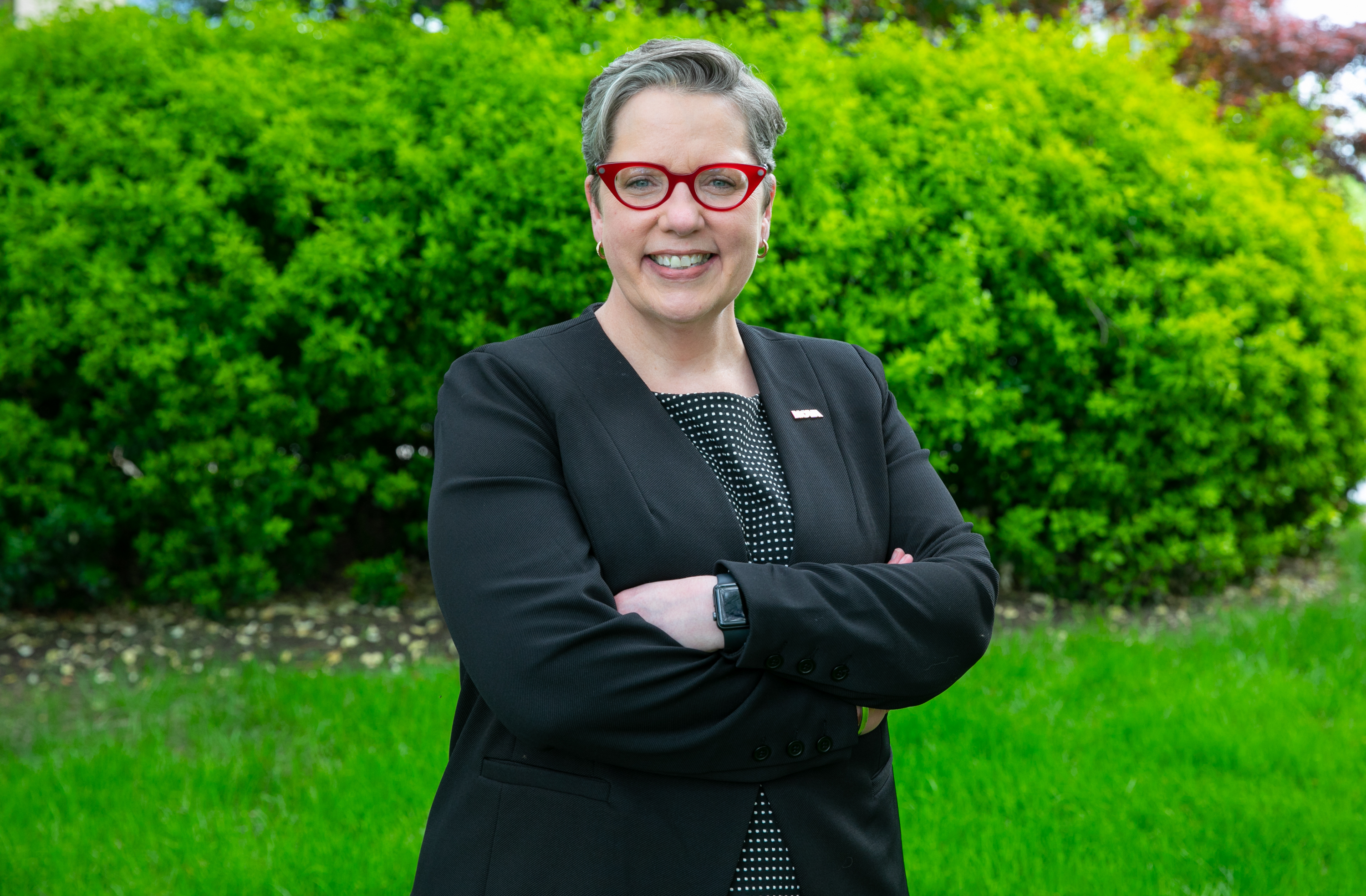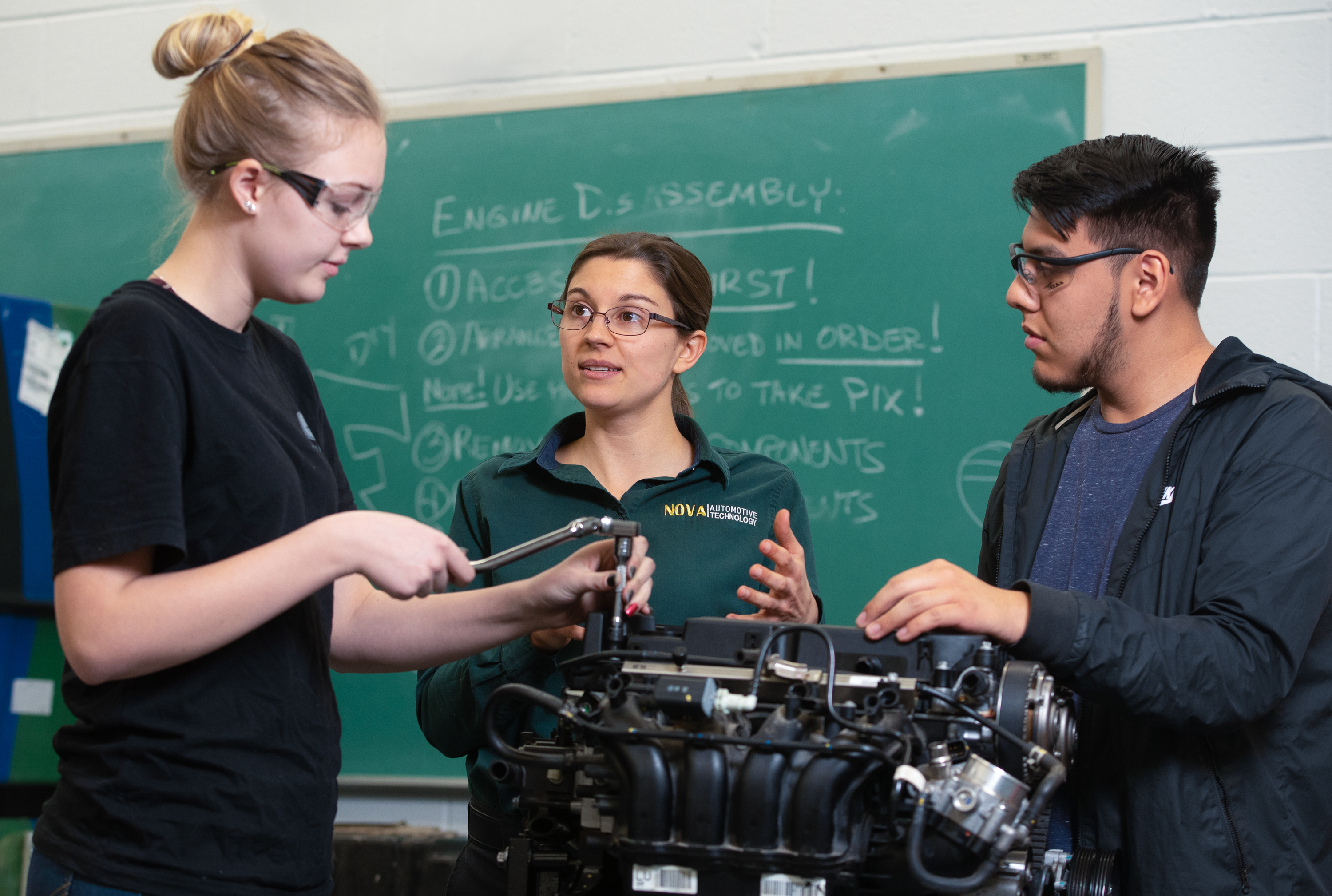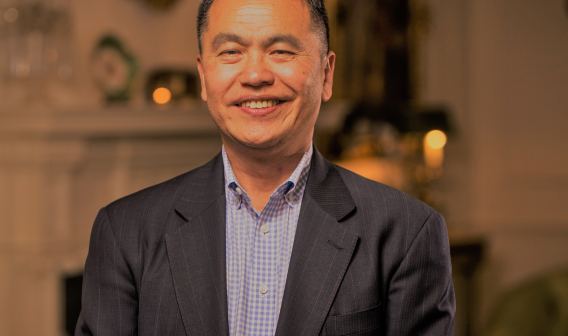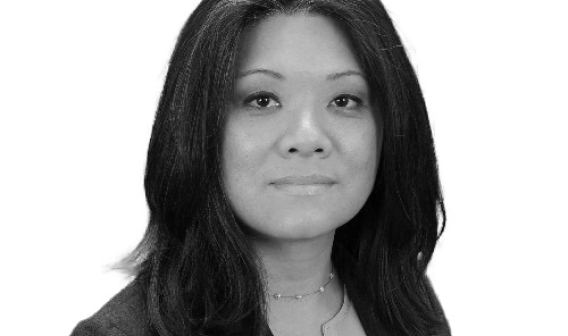Creating Positive Outcomes for Students and Employers
A Conversation With Anne Kress
Dr. Anne Kress is president of Northern Virginia Community College (NOVA), the largest public educational institution in Virginia and the second-largest community college in the United States. VEDP President and CEO Jason El Koubi spoke with Kress about the importance of community colleges in workforce development, the effectiveness of industry partnerships in delivering talent to employers, and NOVA’s efforts to serve a large, diverse Northern Virginia population.
Jason El Koubi: Tell us about your background and how you landed at Northern Virginia Community College.
Anne Kress: I really fell into the world of community colleges. My first degree was in finance, but I went out and did not really enjoy working in that field. I went back and got a bachelor’s and a master’s in English. Before moving on for my doctorate, I decided to take a break. I taught at Santa Fe, the local community college in Gainesville, Florida, and just fell in love with the mission and the students. I was a first-generation college student and I saw myself in so many of the students I was teaching.
Then I went back and worked on my doctorate, and the community college called to ask if I would apply for a full-time position as an English faculty member. I jumped at the chance and have been working in community colleges my whole career. I eventually became provost of Santa Fe, and then moved to upstate New York to Monroe Community College, where I was president for about 11 years. Then I was recruited to Virginia. I’ve now been at NOVA since January of 2020. Even though it’s been an unprecedented time since I got here, I could not be more proud of Northern Virginia Community College.
El Koubi: At this point in your career, what is your vision on the role of the community college and the region it serves?
Kress: At the heart of the community college mission is really that first word, community. It’s one of the things that has drawn me to this sector for close to three decades. It’s the connection between a community college and the community that is the power of the work we do. We provide high-quality, accessible, and affordable higher education to the region. It prepares students for transfer, prepares them for careers. It also provides lifelong learning — now we call it skilling and upskilling and reskilling as folks move through multiple careers.
It’s an open door of economic opportunity that strengthens and supports the local community and all residents. We serve a very broad and diverse region, with more than 80,000 students in credit and noncredit programs. Every single year, we connect our students to highly selective universities. We connect them to in-demand, high-wage careers. It is really an on-ramp to lives that are transformed that’s the power of our mission.
El Koubi: NOVA is the largest public educational institution in our state and serves the population with a wide range of educational goals. What does the college need to do to effectively serve such a diverse set of stakeholders?
Kress: I don’t want to overlook the foundation of the work that we do: the dedicated and talented faculty and staff at NOVA who are committed to student success. I think that’s especially important at community colleges because we serve so many first-generation students who, in some cases, aren’t just first-generation college, but may be the first in their family to graduate from high school. So, connecting with someone is incredibly important.
We leverage that with these incredibly impactful partnerships with business and community leaders. For example, we know that many of our students suffer from food insecurity. So, we’ve got a fantastic partnership that’s supported by M&T Bank with the Capital Area Food Bank, where they bring in a thousand pounds of food at a time to our pantries to support our students.
We need to take an innovative approach to providing more and more diverse onramps to higher education opportunities. At NOVA, we provide high school dual enrollment to about 14,000 students every year at high schools across our region at no cost to those students, which is in effect a scholarship of about $16 million. We also work with businesses around paid internships and apprenticeships, those learn-and-earn opportunities that are so impactful for students in helping them connect to careers.
Then we’ve got these fantastic transfer on-ramps, like our nationally recognized partnership with George Mason University on ADVANCE, which provides students with 100% of their credits transferring in more than 80 different degrees. They don’t need to leave Northern Virginia for a high-quality bachelor’s degree, or master’s degree and beyond.
El Koubi: You’re doing so much to serve the region’s students and empower them with what they need to pursue their goals. You’ve mentioned the importance of corporate partnerships. I know under your leadership, NOVA has entered into partnerships with a wide range of employers, including some of the largest in the region, like Amazon, Alarm.com, and Micron. How have those partnerships worked for both students and the companies?
Kress: It’s a win-win. We’re almost in a talent arms race right now. There’s such high demand for skilled workers. For these companies to be able to partner with NOVA and help inform the curriculum so that when our students graduate, they’re ready to work — and for our students to engage with these employers from the very beginning — it’s transformational.
We used the pandemic to rethink some of our corporate relationships and career services for students. We designed the first-of-its-kind business engagement center. In some fields, we’ve been able to provide students guaranteed interviews, so they know that at the end, there’s an employer waiting and eager to meet them. Many of them will get job offers before they even graduate.
This is really, I think, what all community colleges need to look at going forward. We see the talent shortage, but we also know there are so many members of our community who are basically on the outside looking in when it comes to these economic on-ramps. The more we can do to diversify these opportunities, the better off we’re going to be.
El Koubi: Are there any partnerships that NOVA is particularly proud of?
Kress: We were delighted recently to be awarded a congressionally directed spending grant around data center operations. Northern Virginia is in many ways a global data center hub. We simply cannot produce enough graduates, so we partnered with the data center consortium that represents big and medium and small players in that industry sector, and we’ll be expanding our data center operations program to a second campus.
These partnerships extend beyond, “Hey, we need a lot of workers.” These are companies that help us with the curriculum and in some cases provide us with adjunct faculty. As you can imagine, as much as talent is in high demand, it’s hard to find people to work at a public institution for what we’re able to pay them when they could make so much more in the open market. But the companies understand that and will help us with adjuncts.
Then they invest in scholarships for students. It’s a virtuous cycle that’s really helping regional growth. It’s helping students move forward economically. It’s helping the knowledge economy that is key to the future of the entire Commonwealth. These are the kinds of partnerships I think NOVA does incredibly well, because we’re always looking at the horizon to see what’s next.
El Koubi: How can educational institutions ensure that they’re preparing students for jobs that will be relevant in the future?
Kress: One of the things we look at very closely is labor market information. Where are the jobs today? Are they paying sustaining wages? Do we have enough seats in those programs? Do we need to expand them? We have an entire arm of NOVA that just looks at the data. Then that same group engages actively and surveys employers. In fact, we partnered with the Northern Virginia Chamber on its first-ever workforce index to look at needs — not just today’s, but what will they be tomorrow?
We have active advisory boards for all of our career and technical education programs, helping us to understand not just the skill sets students need for today’s employment, but where these industries are going so we can prepare that curriculum, partner with them, and recruit students and faculty. Because this is such a pressing matter for all of us, I’m starting a new Future of Work Business Advisory Council to the president that will meet at least twice a year, probably three times a year, whose purpose is to scan the horizon.
El Koubi: I’m so glad you said that, Anne, because it’s one example of why I think Virginia is America’s top state for talent. A big part of that is not only the strengths of institutions like yours, but the connections being made between the incredible assets across the Commonwealth.
You’ve been at NOVA now for just over two years, after spending much of your career in Florida and New York. How does Virginia compare to some of the previous places where you have lived and worked?
Kress: I just love it here. There’s a commitment across Virginia, and certainly in Northern Virginia, to innovation and collaboration across sectors that is really driving change and driving opportunity.
I’ll give you an example that NOVA’s part of with Micron Technology. When Micron decided to invest their billions in Northern Virginia, they partnered with NOVA to make sure they would have a workforce to keep that going. But then NOVA looked around and began a partnership with Year Up. They recruit underserved students and young adults into programs that prepare them not just for work in industries like mechatronics and cybersecurity, but also provide social and cultural capital through internships and a full-scale development program that help students navigate these industries.
That’s creating a next-generation workforce, unlike anything I’ve seen previously. An innovation ecosystem is growing right now in NOVA’s backyard, such as Amazon HQ2, or the announcement about Google’s scaled-up investment across Virginia, and the Grow with Google program coming to the community colleges. There’s greater interest in pushing more of this through career and technical education, dual enrollment, so that students in high school might even earn those credentials before they graduate so they’re ready to go.
That’s what’s building the knowledge economy. It sets Virginia apart. Virginia’s commitment to talent is nationally recognized.
El Koubi: Like you, I have loved working in Virginia. I have loved living in Virginia. Are there any hidden gems that you’ve discovered in Northern Virginia, or any other favorite spots as you have explored this beautiful Commonwealth?
Kress: I live near the Potomac. I don’t live too far from Mount Vernon. It’s not a hidden gem because it’s right there, but I do love driving and walking along the Potomac in every single season. It is gorgeous.
My husband and I have been exploring the region through its restaurants. We love Restaurant Week and seeing the many cultures across our region in these family-owned restaurants. We’re eating very well here. One of the great things about Northern Virginia is the diversity of culture, the richness that brings, and the strength it brings to the region. So, it’s been a true delight.
For the full interview, visit www.vedp.org/Podcasts






